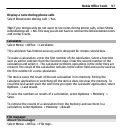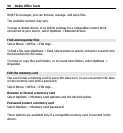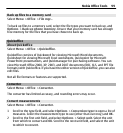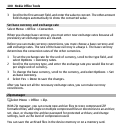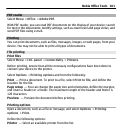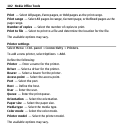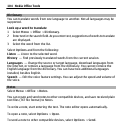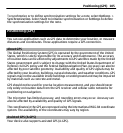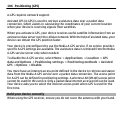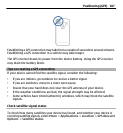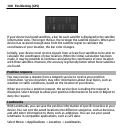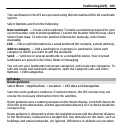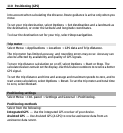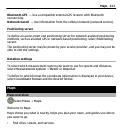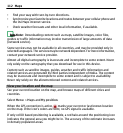
To synchronize or to define synchronization settings for a note, select Options >
Synchronization. Select Start to initialize synchronization or Settings to define
the synchronization settings for the note.
Positioning (GPS)
You can use applications such as GPS data to determine your location, or measure
distances and coordinates. These applications require a GPS connection.
About GPS
The Global Positioning System (GPS) is operated by the government of the United
States, which is solely responsible for its accuracy and maintenance. The accuracy
of location data can be affected by adjustments to GPS satellites made by the United
States government and is subject to change with the United States Department of
Defense civil GPS policy and the Federal Radionavigation Plan. Accuracy can also be
affected by poor satellite geometry. Availability and quality of GPS signals may be
affected by your location, buildings, natural obstacles, and weather conditions. GPS
signals may not be available inside buildings or underground and may be impaired
by materials such as concrete and metal.
GPS should not be used for precise location measurement, and you should never
rely solely on location data from the GPS receiver and cellular radio networks for
positioning or navigation.
The trip meter has limited accuracy, and rounding errors may occur. Accuracy can
also be affected by availability and quality of GPS signals.
The coordinates in the GPS are expressed using the international WGS-84 coordinate
system. The availability of the coordinates may vary by region.
Assisted GPS (A-GPS)
Your device also supports assisted GPS (A-GPS).
Positioning (GPS) 105



